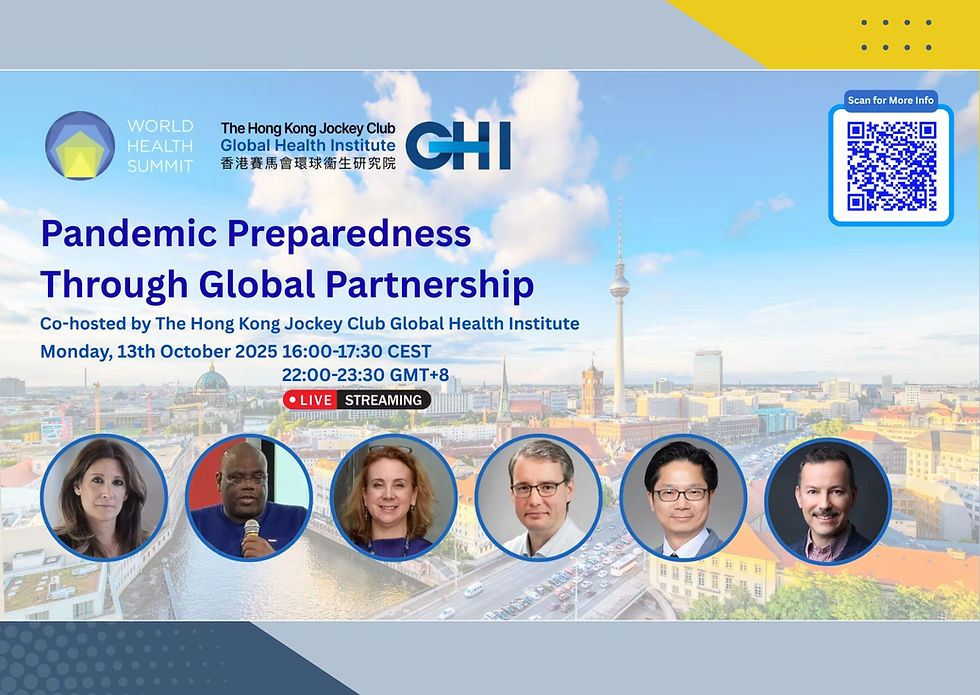[IWD2023] “Being a woman in science is a daily opportunity to contribute and have a societal impact"
- simonc2i
- Mar 10, 2023
- 2 min read
March 8 is the International Women's Day, an opportunity to celebrate the achievements of women all around the world. HKU-Pasteur is committed to work towards a gender equal world. A world free of bias, stereotypes, and discrimination, that is diverse, equitable, and inclusive.
After discussing with Kimberly Edwards and Sook-San Wong, we took the time to ask a few questions to another member of the HKU-Pasteur team, PhD Student Sonia Younas.

What is your educational background and training? And why did you chose to work in science?
Sonia Younas: I obtained a Bachelor of Science in Medical Laboratory Technology and a Master of Philosophy in Microbiology. During my bachelor's degree, I got extensive hands-on training with clinical samples in a hospital setting. My science teacher in high school inspired me to do my best. I have always been interested in science-based subjects, especially biology-related subjects. I am astounded by the plethora of organisms that I share the planet with. It intrigued me to choose Science

How do you feel about the role of women in science today?
Sonia Younas: Science is an everyday source of inspiration, of motivation to learn, and wonder. It gives us the wings never to stop dreaming, freedom of thought, and power of knowledge. Being a woman in science represents a daily opportunity to contribute and have a societal impact.
I worked as a Microbiologist in a private and public Hospital for more than 5 years. I can explore the world from a different perspective and appreciate the beauty of our universe. Being in science allows me to use my role to nudge the culture and make it more inclusive for everyone. Find a place where you love to work that respects, supports, and helps you with your ambitions and moving toward your dreams.
What is your role at HKU-Pasteur and what projects are you working on?
Sonia Younas: I am a 2nd year PhD Student at HKU-Pasteur and currently I work on the epidemiology and evolution of swine influenza viruses, which can cause respiratory illness in humans and potentially lead to pandemics.


![[College de France Lectures] Lluis Quintana-Murci](https://static.wixstatic.com/media/edc9e3_78e7245899fd47079c0399a4a411963c~mv2.jpg/v1/fill/w_980,h_695,al_c,q_85,usm_0.66_1.00_0.01,enc_avif,quality_auto/edc9e3_78e7245899fd47079c0399a4a411963c~mv2.jpg)

![[Symposium] HKU Mechanobiology Initiative](https://static.wixstatic.com/media/edc9e3_8fa1ee8d968b4af99530bcb9b7992ac4~mv2.jpg/v1/fill/w_980,h_735,al_c,q_85,usm_0.66_1.00_0.01,enc_avif,quality_auto/edc9e3_8fa1ee8d968b4af99530bcb9b7992ac4~mv2.jpg)